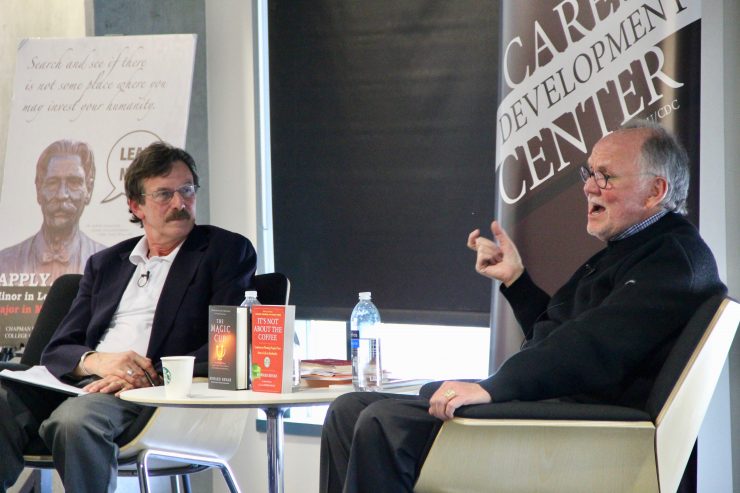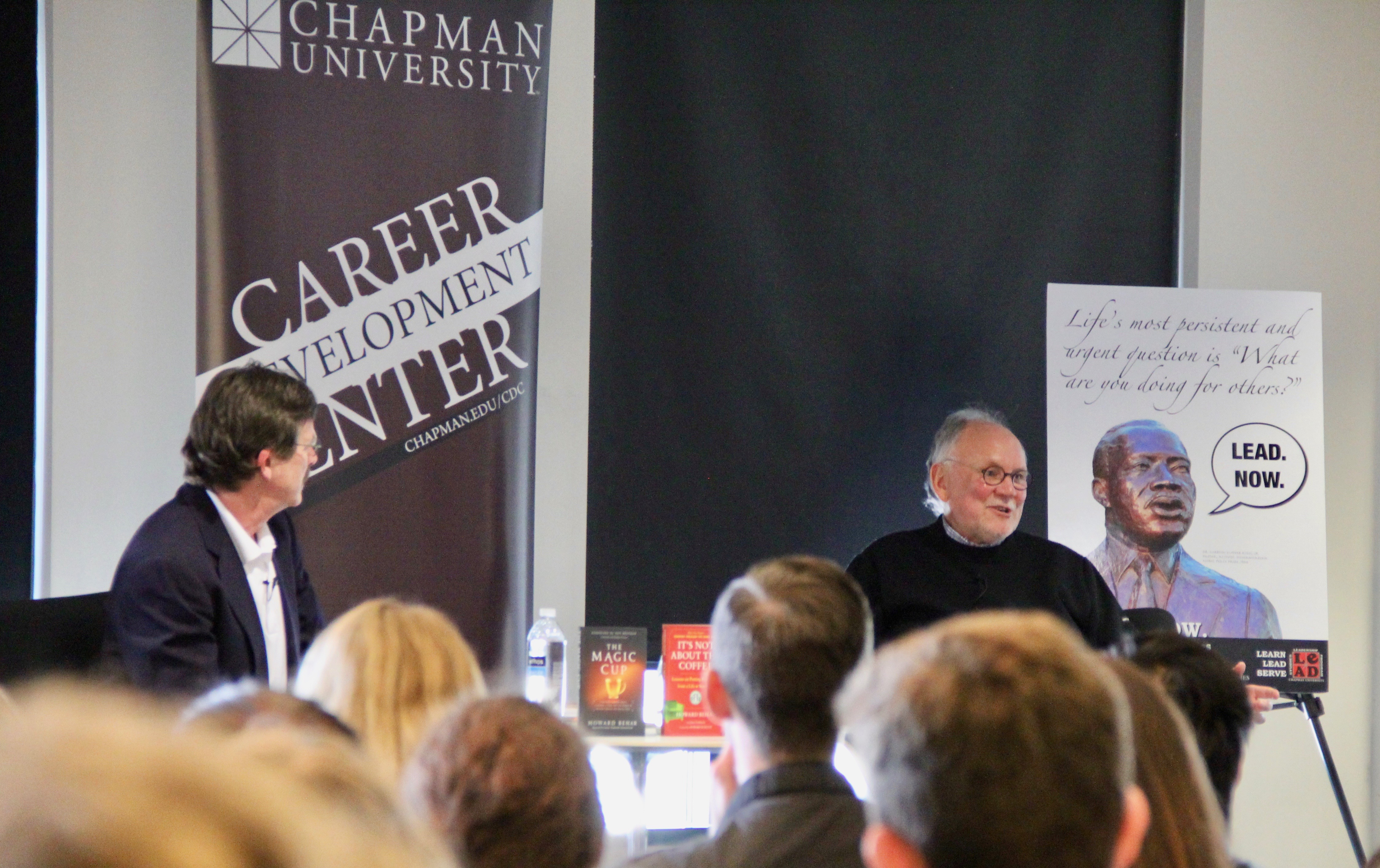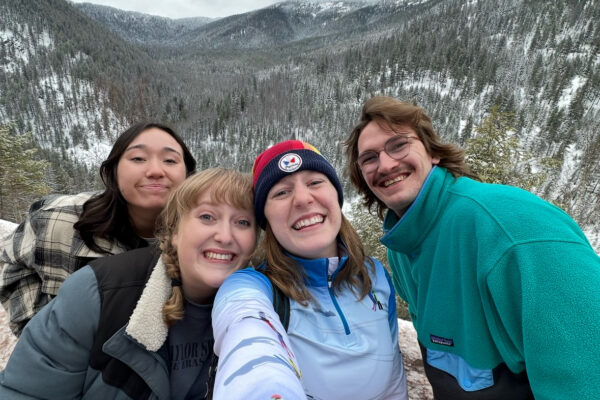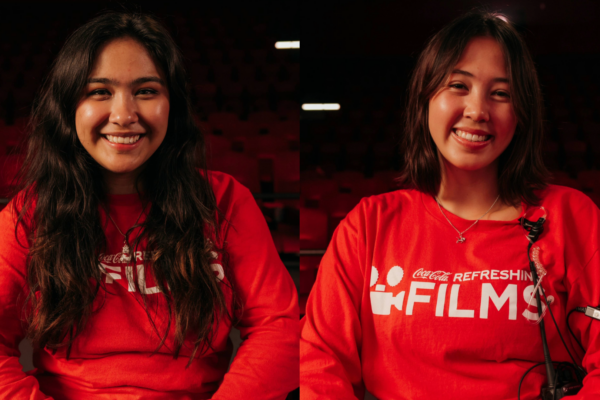As the founding president of Starbucks International, Howard Behar excelled as one of those unconventional executives who dared to do things differently. But he almost killed that spirit with a bad case of self-doubt.
Speaking to a crowd of Chapman University students, Behar recounted how as a young executive at a furniture rental company he literally sat on his hands in board meetings. He was newly promoted and insecure in the corporate culture of executive MBAs, so he quashed his candid nature, something a boss had called “emotional.”
It was a disaster.
“In about two months I went from a guy who loved his job, who got into the office early every morning, to a guy who hated his job,” he told the students packed into Argyros Forum to hear him speak. “The problem was I didn’t know who I was.”
His employers eventually called him on it, too, asking what happened to that outspoken guy they liked. It was an early lesson that started Behar down a path of self-discovery that helped him build the Starbucks culture and which he explained in his bestselling books It’s Not About the Coffee
and The Magic Cup.
During a Q&A discussion sponsored by the Career Development Center and the Leadership Studies program on Feb. 2, Behar described how that experience pushed him into a journey of self-reflection. The process involved self-help books, a hard look at his values and the decision to put people first, he said.

Starbucks executive Howard Behar, right, joins CES professor Mark Maier, Ph.D., coordinator and founding chair of Chapman’s Leadership Studies Program, in a Q&A conversation. The event was sponsored by the Career Development Center and Leadership Studies. (Photo/Juliet Barnard ’18)
He came to this conclusion: “Everything I do in life has to have a purpose bigger than me.”
Years later, with that servant leadership philosophy and his unleashed personality as his personal brand, he was a natural fit for Starbucks, then a regional chain with just 28 coffee shops but big aspirations.
The passion didn’t mean it was all fun and games, Behar told the students – all too young to remember a world without a Starbucks on every corner. He even revealed how his plan to raise minimum wages in the coffee shops cost the company millions more than expected because he did the math wrong.
“(Starbucks) looks like this thing that was magic and just went right up to the top. That’s not how it happened. We almost went bankrupt a few times,” he said.
Today, Behar is a highly sought-after coach in the business world, where his lessons in corporate social responsibility are increasingly part of the zeitgeist. But there are still corporations out there that carry the attitude of that old boss who long ago told him to rein in his emotions. Be ready for them and save up enough money to allow for breaking away, if that is the only option, he said.
“You always want to have money in the bank, so that you can live your life according to your own values,” he said.
Display image at top/ Mark Maier and Howard Behar. (Photo/Juliet Barnard’18)





Add comment